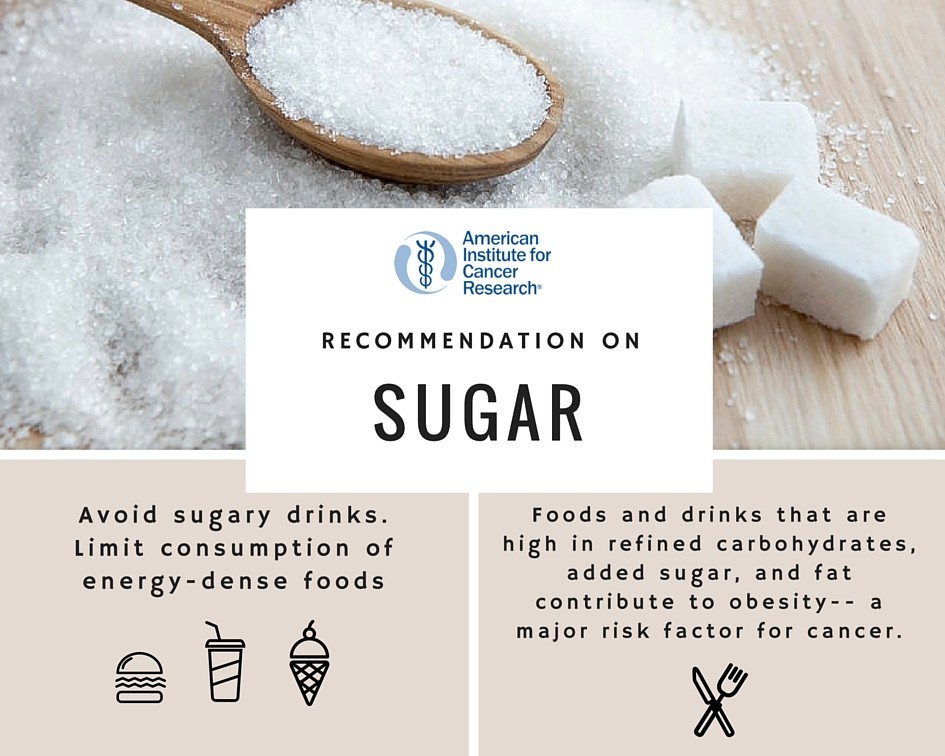The World Health Organization is urging countries to tax sugary sodas, and other sugary drinks in order to lower consumption, which can reduce the numbers of people suffering from diabetes as well as cancer and other non-communicable diseases, according to a report they released today.
Regular consumption of sugary drinks leads to overweight and obesity, diabetes and tooth decay, the report highlights. With these their link to weight gain, sugary drinks also increase cancer risk. AICR research shows overweight and obesity increases risk of eleven cancers, including post-menopausal breast, colorectal and esophageal.
Avoiding sugary drinks is one of AICR’s Recommendations for Cancer Prevention.
Foods and beverages high in added sugars are a major source of excess calories, particularly for children, adolescents and young adults, says the report.
Worldwide, an estimated 42 million children aged under 5 were overweight or obese in 2015, an increase of about 11 million during the past 15 years. For adults, prevalence of obesity more than doubled between 1980 and 2014. Today’s report coincides with World Obesity Day, which this year focuses on highlighting and reversing childhood obesity trends.
The WHO report says there is growing and consistent evidence showing that taxes and subsidies are effective at reducing consumption of sugary drinks and increasing fruit and vegetable intake. For sugary drink reductions, evidence was strongest and most consistent for taxing the drinks from 20 to 50 percent. Sugary drinks include fruit drinks, sports drinks, energy drinks and sodas.
Adopting these policies will not only lead to the reduction of diabetes, cancer and other non-communicable diseases, the report states. It will also reduce the economic burden these diseases bring.
Here’s the US infographic for World Obesity Day.







